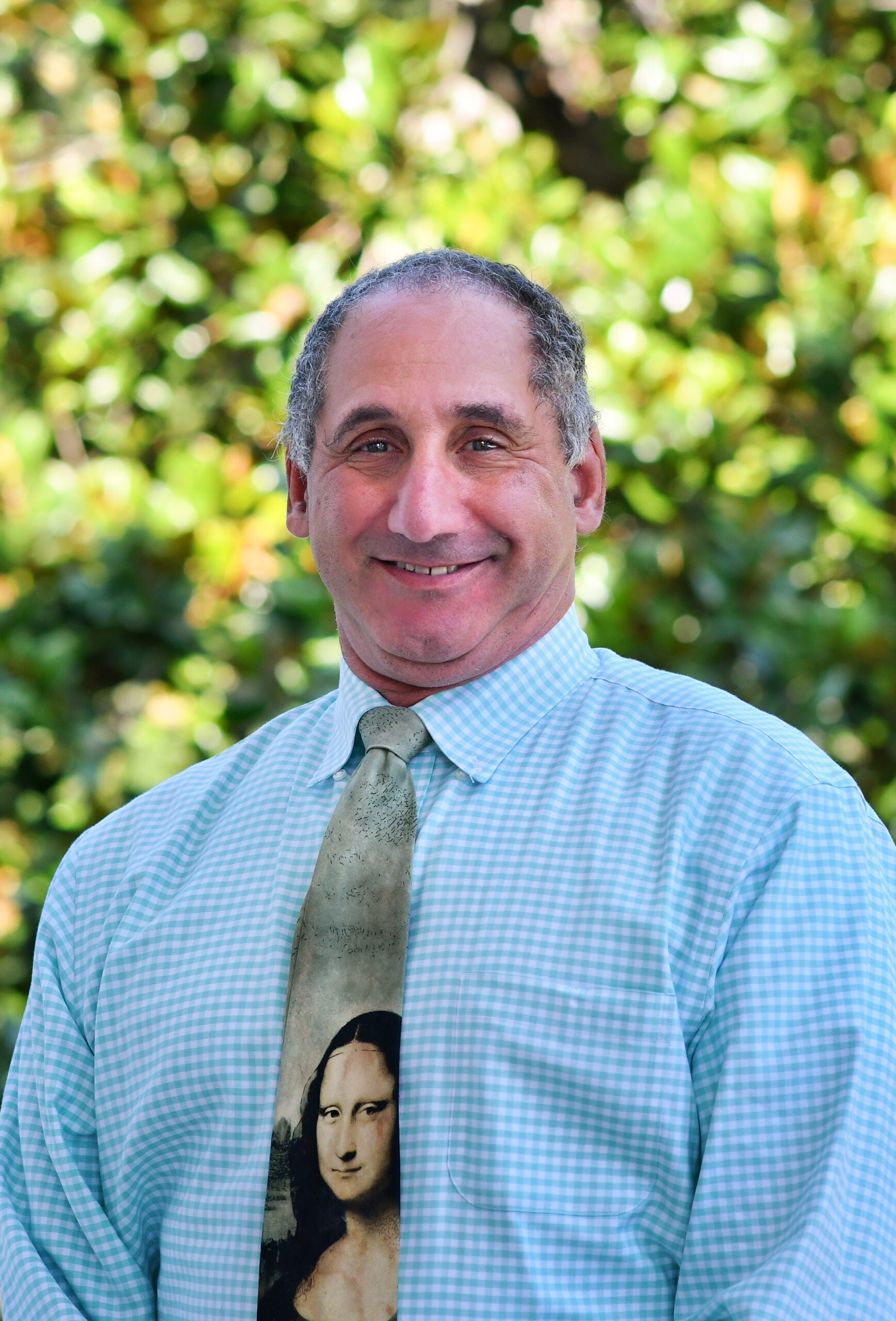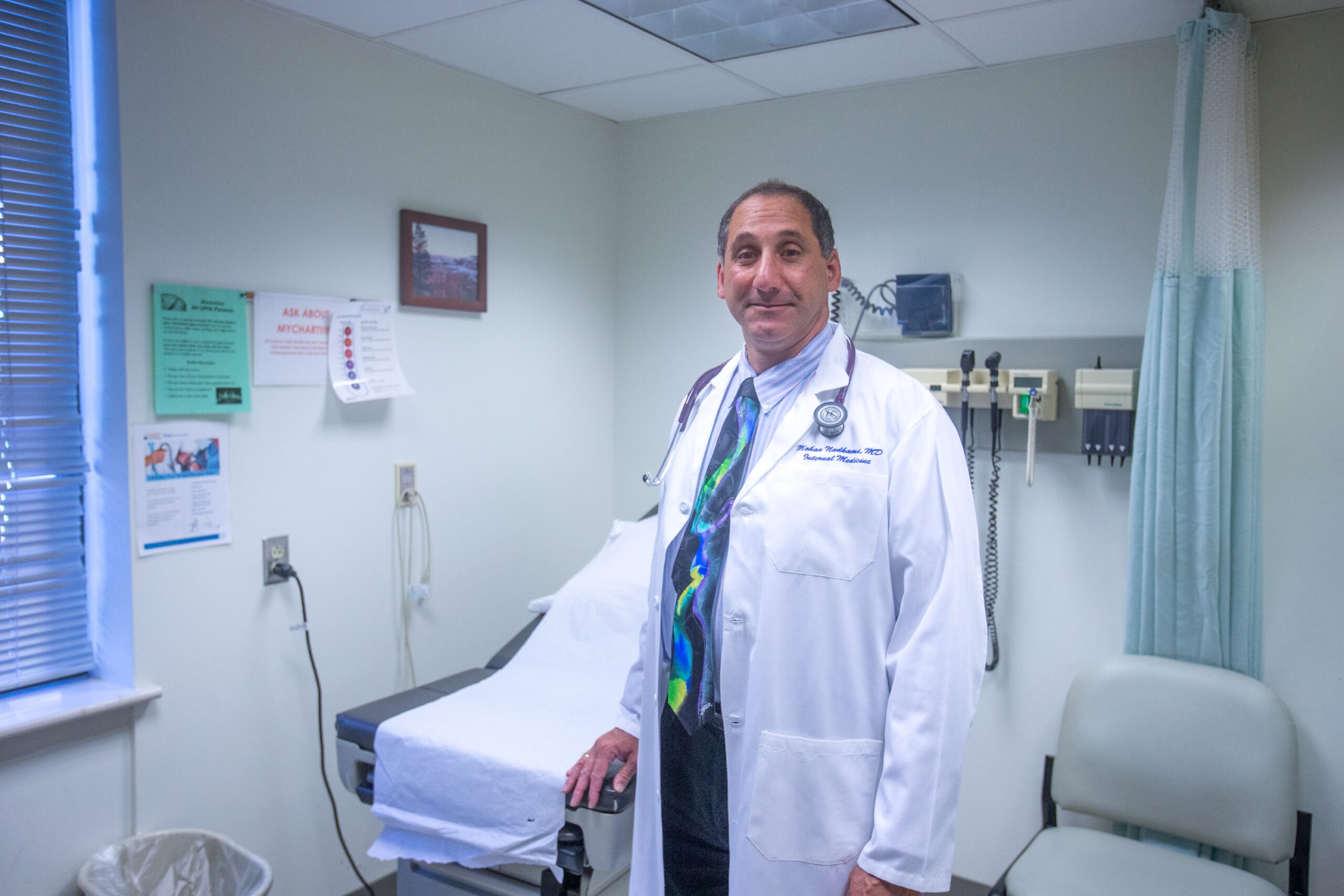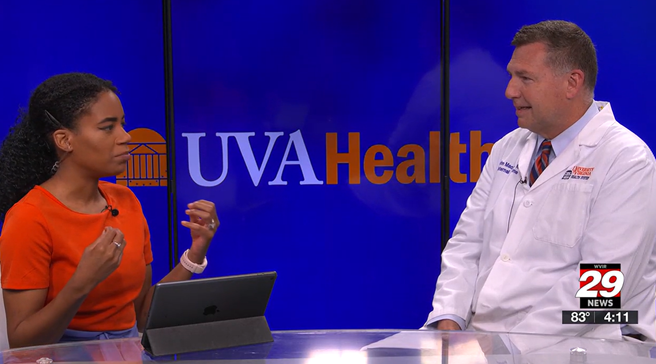Media Archive

Autumn brings a chill in the air – and the start of another season of respiratory illnesses, which can be especially hard for older adults.
Until recently, the CDC recommended that everyone age 65 and older get a pneumonia vaccine. A year ago, in October 2024, the CDC lowered the recommended age from 65 to 50 due to a growing recognition that pneumonia can cause serious illness in people ages 50-65 – especially people who have other conditions that make them particularly vulnerable.
Since then, three other pneumonia vaccines for adults, also made using the newer technology, have been licensed and added to the list of those recommended for older adults. The most recent of these is PCV21, which was approved in 2024 and specifically targets strains that usually affect adults rather than children.
Which specific pneumonia vaccine you get will depend on your medical conditions and other health factors. Your health care provider will determine the most appropriate option, but you can learn more about pneumonia vaccines on the CDC’s website and bring specific questions to your next health care visit.
Read more in Conversation
 Dr. Mo Nadkarni featured
Dr. Mo Nadkarni featured
discussing new research into
the shortage of primary care
doctors across Virginia.
A Virginia Commonwealth University
(VCU) research paper describes
that 44% of people in Virginia lack
adequate access to primary care.
“If you lack access to a primary
care physician, or have a long
distance to drive, it’s more likely
that you’ll delay care, particularly
preventive care, and only show up
when things have gotten very bad,”
said Dr. Mo Nadkarni, professor
of medicine and Division Chief for
General Internal Medicine at UVA.
WATCH ON 29NEWS
 Whether moment of
Whether moment of
lightheadedness or room-whirling
vertigo, dizziness can be unsettling.
A common cause is the shifting of
tiny inner-ear crystals that help us
maintain balance. When these move
out of their normal spot — which
happens more often in older adults
— it can create a spinning sensation
known as benign paroxysmal
positional vertigo. “If the room is
spinning, and it started suddenly
when you got up from tying your
shoe, let’s say, odds are you’re
experiencing BPPV,” said Dr. Laurie
Archbald-Pannoneth.
READ MORE

 Laurie R Archbald-Pannone, MD, MPH
Laurie R Archbald-Pannone, MD, MPH
Claude Moore Professor of Geriatric Medicine
University Physicians at JABA
Dean for Student Affairs, Dunglison College[/caption]
The Pew Research Center
estimates that the number of
Americans ages 100 and older will
quadruple by 2054, so our team
is excited to move into this new
clinic space to ensure older adults
in Central Virginia have convenient
access to care tailored to their
unique needs,” says Justin Mutter,
MD, MSc, UVA Health’s Section
Head for Geriatric Medicine. The
expanded clinic’s team will include
geriatricians Karen Starr, MD, and
Laurie Archbald-Pannone, MD —
both recognized among Virginia’s
top doctors in geriatric medicine by
Virginia Business magazine.
“Access to health care is a critical
piece of both managing our health
conditions and maintaining healthy
aging,” said Laurie Archbald-
Pannone, geriatric physician at
UVA Health. “What we see in our
community, and really kind of
across the country, is that people
are aging, more people are getting
older, more people are living
longer, and that’s great,” Archbald-
Pannone said. “As physicians and
health care providers, we need
to make sure that we’re able to
provide the best possible care for
people as they’re aging.”
 Two Department of Medicine doctors, Dr. Mohan M. Nadkarni and Dr. Coleen A. McNamara, received Thomas Jefferson Awards, the university’s highest honor.
Two Department of Medicine doctors, Dr. Mohan M. Nadkarni and Dr. Coleen A. McNamara, received Thomas Jefferson Awards, the university’s highest honor.
 Laurie Archbald-Pannone, MD,
Laurie Archbald-Pannone, MD,
an associate professor in the
Department of Medicine, spoke
with HuffPost about the importance
of avoiding sugar-sweetened
beverages like soda to support
healthy aging. Although water
remains the best option for staying
hydrated, Dr. Archbald-Pannone
noted that sparkling water can be
a suitable alternative to soda—
provided it’s free of sugar and
artificial sweeteners. To enhance
the flavor, she suggests adding fruits
like lemon or sliced strawberries, or
herbs such as mint. And if quitting
soda feels challenging, it may be
more effective to cut back gradually
rather than attempting to stop all at
once.
 Approximately 1.4 million people
Approximately 1.4 million people
will receive a diagnosis of diabetes
this year. That means conversations
with patients about what it means to
have this chronic condition and how
to manage it effectively.
Learning some motivational
interviewing skills can help with
navigating this type of conversation,
said Mohan Moreshwar Nadkarni,
MD. Nadkarni uses these skills
when seeing patients at a large
primary care clinic where about 30%
of the patients have diabetes.
 People are living longer these days
People are living longer these days
than they did in the past. While
that’s definitely good news, it
does come with one caveat. While
lifespan is increasing, healthspan is
decreasing. On average, someone
in the U.S. spends up to 20% of
their life not in good health.
What this looks like varies. It
could mean having heart disease,
experiencing a neurodegenerative
disease such as dementia,
living with chronic pain or having
osteoporosis. None of that is how
you want to spend your golden
years, right?
“Good nutrition helps our brain
and cognition, lowering the risk
of memory problems. It helps
with bone and muscle strength,
which lowers the risk of falling,
and it also lowers the risk of
diabetes and hypertension,” said
Dr. Laurie Archbald-Pannone, a
geriatrician and associate professor
of medicine at the University of
Virginia. “It’s important to think
about how we can have an impact.
Healthy aging isn’t all about diet,
but it is something we can [control].
Regular movement and maintaining
healthy relationships are other
important parts of healthy aging we
can control,” she added.
Dr. Justin Mutter Medical Director of Virginia at Home, speaks with 29News about medical conditions that keep patients ‘home-bound’ and how it may make getting medical care more challenging.
Watch
 RSV plus an underlying condition
RSV plus an underlying condition
like heart or lung disease leads to
a weakened immune system and
additional strain. It makes recovery
more complicated.
Listen to Dr. Laurie Archbald-
Pannone explain the risks to older
adults who may have these health
conditions and how to best protect
your health.
 Internist Mohan Moreshwar
Internist Mohan Moreshwar
Nadkarni, MD, has been in
practice for more than 30 years.
He is keenly aware of the increase
in patients with diabetes and
prediabetes over the years.
“The increase in diabetes can
be directly linked to the increase
in obesity and the decrease in
exercise,” said Nadkarni.
Driven by sedentary lifestyles, highcalorie
diets, and in some cases,
genetics, have been a key factors.
 Knowing which vaccines older adults should get and hearing a clear recommendation from their health care provider about why a particular vaccine is important strongly motivated them to get vaccinated. That’s a key finding in a recent study I co-authored in the journal Open Forum Infectious Diseases.
Knowing which vaccines older adults should get and hearing a clear recommendation from their health care provider about why a particular vaccine is important strongly motivated them to get vaccinated. That’s a key finding in a recent study I co-authored in the journal Open Forum Infectious Diseases.
Adults over 65 have a higher risk of severe infections, but they receive routine vaccinations at lower rates than do other groups. My colleagues and I collaborated with six primary care clinics across the U.S. to test two approaches for increasing vaccination rates for older adults.
 Dr. Callender speaks with NBC29 about the importance of colorectal cancer screening. Early screening is essential for determining any presymptomatic issues. Several screening options are available depending on the age and history of the patient.
Dr. Callender speaks with NBC29 about the importance of colorectal cancer screening. Early screening is essential for determining any presymptomatic issues. Several screening options are available depending on the age and history of the patient.
 A recent study by the University of Virginia School of Medicine is finding a new approach to boosting vaccination rates for older adults. “One thing that we did in the study was we created a shared decision-making tool. This was a sheet of paper that on the front had recommended vaccines, had spaces for people to write about their health conditions, their questions about their vaccines, and then to start that conversation. So, a tool like that to be informed as to what vaccines you need is an important first step. We also found that once patients were informed, they were then empowered to start that conversation and to ask their clinicians,” said UVA Health geriatrician and lead author of the study, Dr. Laurie Archbald-Pannone.
A recent study by the University of Virginia School of Medicine is finding a new approach to boosting vaccination rates for older adults. “One thing that we did in the study was we created a shared decision-making tool. This was a sheet of paper that on the front had recommended vaccines, had spaces for people to write about their health conditions, their questions about their vaccines, and then to start that conversation. So, a tool like that to be informed as to what vaccines you need is an important first step. We also found that once patients were informed, they were then empowered to start that conversation and to ask their clinicians,” said UVA Health geriatrician and lead author of the study, Dr. Laurie Archbald-Pannone.
Laurie Archbald-Pannone, MD discusses how technology can be used to help decrease barriers to healthcare.
“The goal of our research is to develop ways in which telehealth can be a tool for all of our patients to use; that it can be a tool to decrease barriers and make it easier for our patients to access their healthcare.”
Dr. Leslie Blackhall, Head of Palliative Care at the University of Virginia, believes that accepting dying as a part of life allows us to achieve a fuller and richer life with the days that we live.

